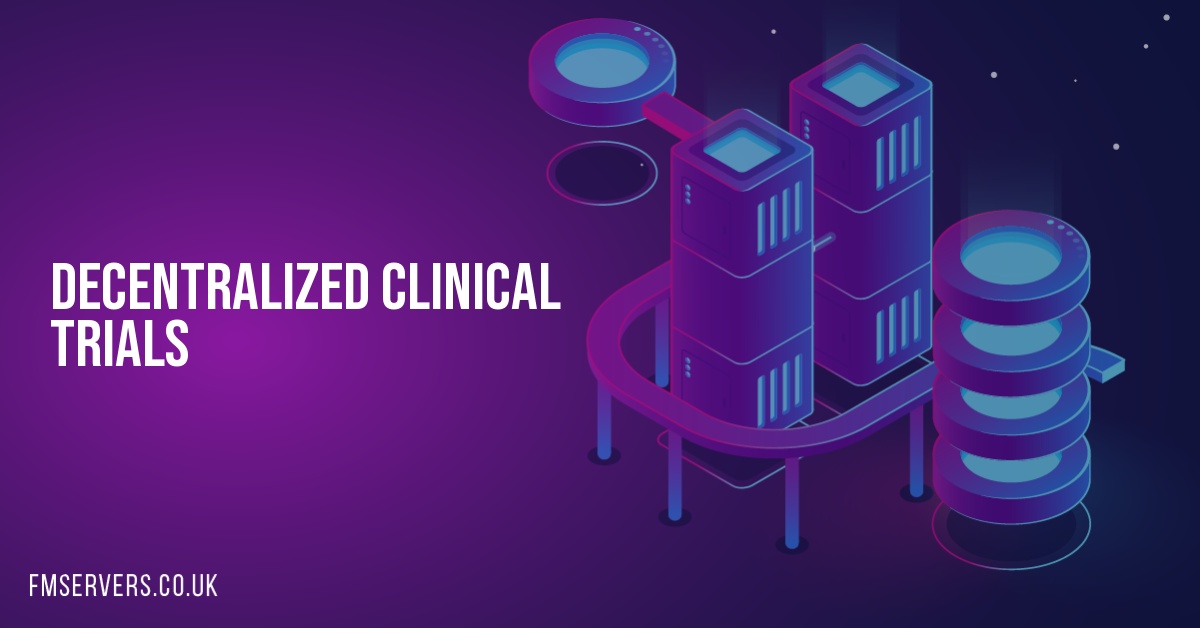Decentralised Clinical Trials – What Exactly Are They?
Decentralized clinical trials are part of a process in which pharmaceutical companies develop new medical drugs meant for human consumption and test them before distributing them to pharmacies. In this article, we look at:
- What decentralized clinical trials are
- The importance of clinical trials
- The benefits of decentralized clinical trials
- How the participants are selected
- The whole process of clinical trails
What Is A Decentralized Clinical Trial?
This term refers to clinical trials that use novel technology and processes to create participation outside of the conventional clinical settings, thus improving access and convenience. These processes include various solutions such as digital capture of consent data, using remote monitoring and diagnostics, home health providers, direct-to-patient drug distribution, and utilising local labs and imaging centres.
The Importance Of Clinical Trials
Clinical trials are experiments and observations made during medical research. Medical research is key to the discovery of treatments for health conditions that may otherwise be life-threatening. This research also aids in the prevention of diseases through the creation of vaccines.
Clinical trials are paramount in ensuring the safety of these drugs for human use before distribution. Life Sciences help in improving the quality of life for everyone and extending lifespans, ensuring a secure generation.
The Process Of Clinical Trials
In a clinical trial, voluntary participants are recruited based on their current health status. This information is captured by collecting the personal data of the potential participants as this determines whether they proceed with the trial or not. This data goes into an autonomous database.
There are 5 phases in a clinical trial. Each step requires complete adherence to regulatory guidance before moving on to the next one. This clinical data is then valuable for the development of the medicines.
There are also a few legal, regulatory and practical issues to consider when adopting clinical trials.
#Phase 0
This phase usually uses a few participants, about 15 or less, to ensure that the medication is not harmful to humans. The doses used in this phase are minimal.
#Phase 1
In this phase, researchers observe the effects of medication on a bigger group of participants (between 20 to 80) who have been cleared of any pre-existing health conditions. During this period, the best method of administering the medication is identified.
#Phase 2
In this phase, several hundred participants are involved. They would already be living with the condition that the medication is meant to treat. The monitoring period can be anything from months to several years.
#Phase 3
In this phase, up to 3000 participants living with the condition are involved, and the monitoring period can take up to several years. The performance of the new medication is compared to an existing one.
#Phase 4
In this phase, thousands of participants are involved, and it also takes several years. Once this phase of the trials is done, the medication is cleared and approved for use by the general public based on patient outcomes.
The phases followed through in clinical trials are vital in the production of medicinal drugs as they ensure that the drugs are safe before they are used by the people in need of them. These phases must adhere to the regulatory guidance given by sponsors, clinical research companies, authorised regulatory organisations, and other key players in the health industry.
Advantages Of Decentralized Clinical Trials
- The Researchers are not limited to reviewing the patient at specific times or during scheduled visits. Still, they can contact the trial participants whenever they need to.
- The alphanumeric capture of statistics curtails the margin of error in data assemblage. This aspect of a clinical trial is crucial because all data captured goes into validating the results. The development of new medicines is sensitive as it could mean the difference between the life and death of the respondent and the general public.
- Participants in remote patient monitoring have a lower drop-out rate than in the case of on-site ones as the trials don’t require any travel. The use of local health facilities and pharmacies also makes it more convenient for the patients.
- Virtual trials utilise home health providers, meaning that the participants don’t have to go to a medical facility for observation, making it “client-centric.”
- When in a situation such as the current Covid-19 pandemic case, a decentralized clinical trial would be the ideal method to follow. The remote monitoring and evaluation that is involved in the clinical research process make it a safer bet.
https://www.obviohealth.com/decentralized-clinical-trials is a comprehensive FAQ of decentralized clinical trials.
Wrap Up
While the traditional on-site clinical trial method of research may be preferred by many researchers, in view of the on-going Covid-19 pandemic status quo, decentralized trials are now the healthier option in research science. Clinical trials cannot be stopped as they are the backbone of the development of new medicinal drugs that help improve the quality of life of many people.
Decentralization of the trial process ensures that patient recruitment is seamless. The participants can still sign for the research programs without having to show up physically. The use of digital technologies in the clinical research process ensures high data quality as the margin of human error is diminished. The importance of data accuracy in a clinical trial cannot be emphasised enough.

